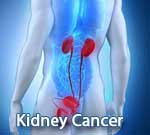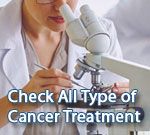Non Small Cell Lung Cancer
Followup Care:
You'll need regular checkups after treatment for lung cancer. Even when there are no longer any signs of cancer, the disease sometimes returns because undetected cancer cells remained somewhere in your body after treatment.
Checkups help ensure that any changes in your health are noted and treated if needed. Checkups may include a physical exam, blood tests, chest x-rays, CT scans, and bronchoscopy.
If you have any health problems between checkups, contact your doctor.
Sources of Support
Learning you have lung cancer can change your life and the lives of those close to you. These changes can be hard to handle. It's normal for you, your family, and your friends to have many different and sometimes confusing feelings.
You may worry about caring for your family, keeping your job, or continuing daily activities. Concerns about treatments and managing side effects, hospital stays, and medical bills are also common.
Because most people who get lung cancer were smokers, you may feel like doctors and other people assume that you are or were a smoker (even if you weren't). You may feel as though you're responsible for getting cancer (or that others blame you). It's normal for anyone coping with a serious illness to feel fear, guilt, anger, or sadness. It may help to share your feelings with family, friends, a member of your health care team, or another person with cancer.
Here's where you can go for support:
- Doctors, nurses, and other members of your health care team can answer many of your questions.
- Social workers, counselors, or members of the clergy can be helpful if you want to talk about your feelings or concerns. Often, social workers can suggest resources for financial aid, transportation, home care, or emotional support.
- Support groups also can help. In these groups, patients or their family members meet with other patients or their families to share what they have learned about coping with the disease and the effects of treatment. Groups may offer support in person, over the telephone, or on the Internet. You may want to talk with a member of your health care team about finding a support group





































